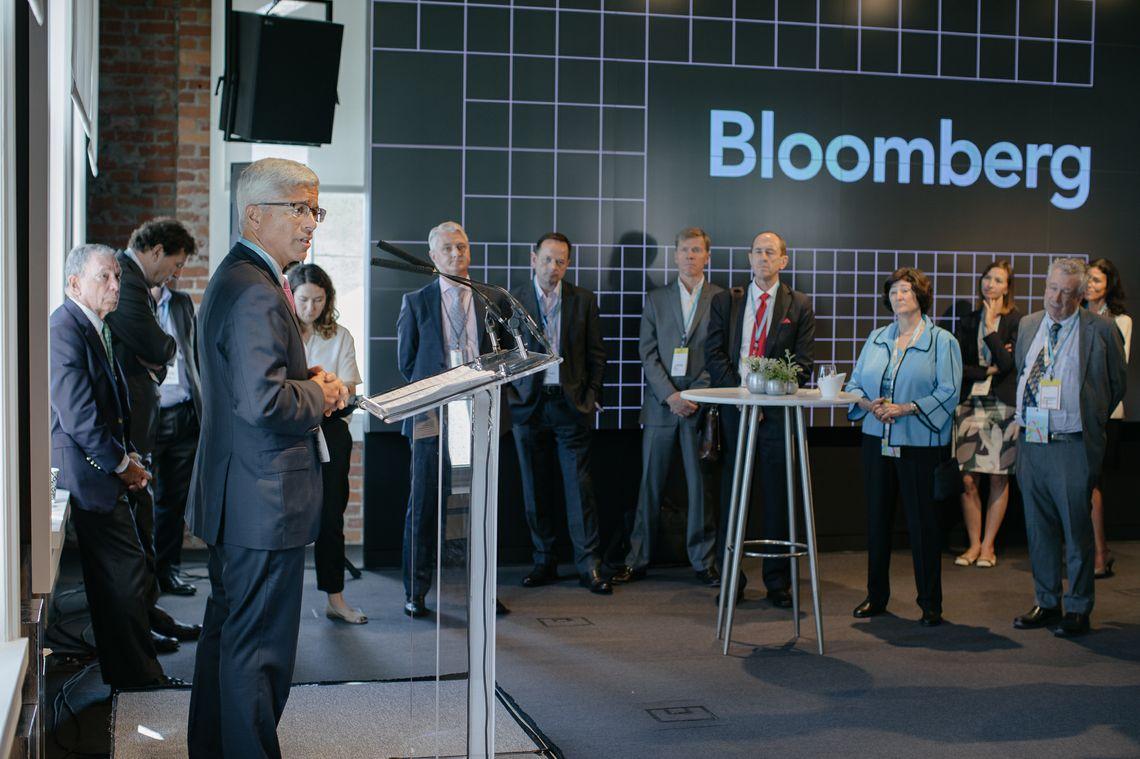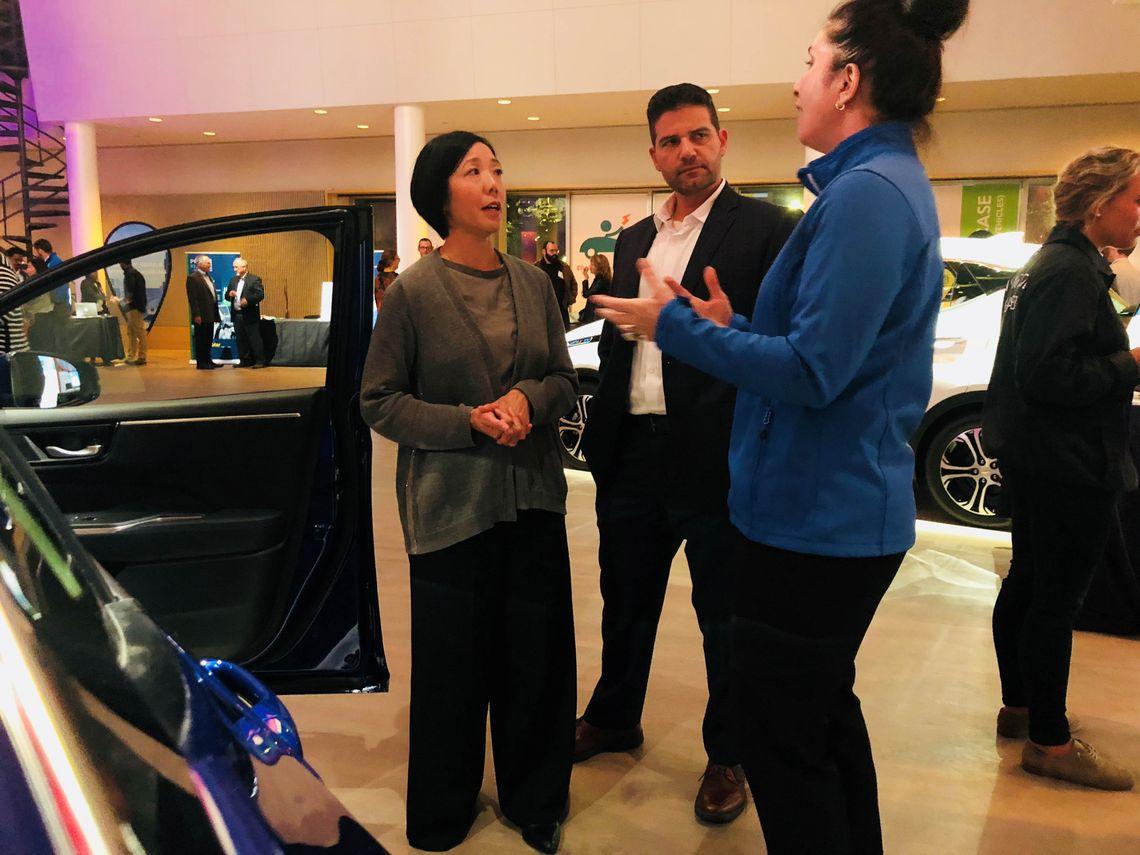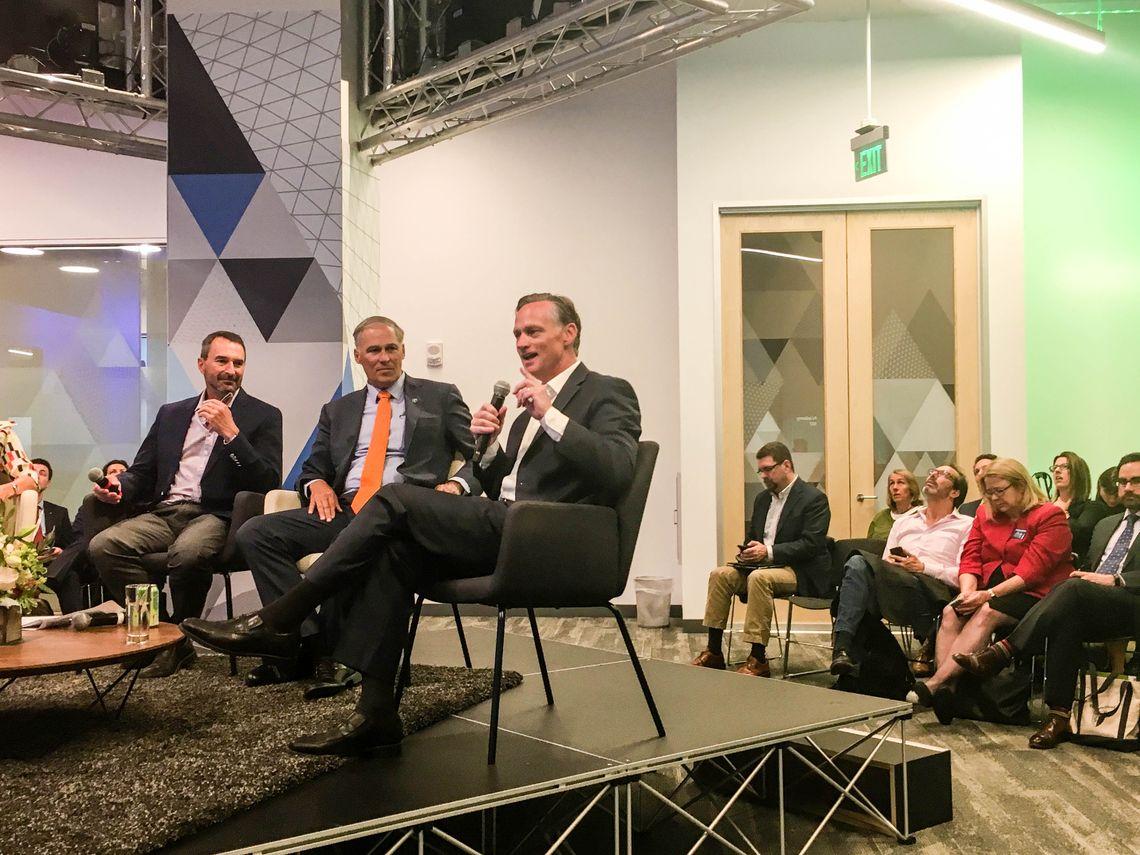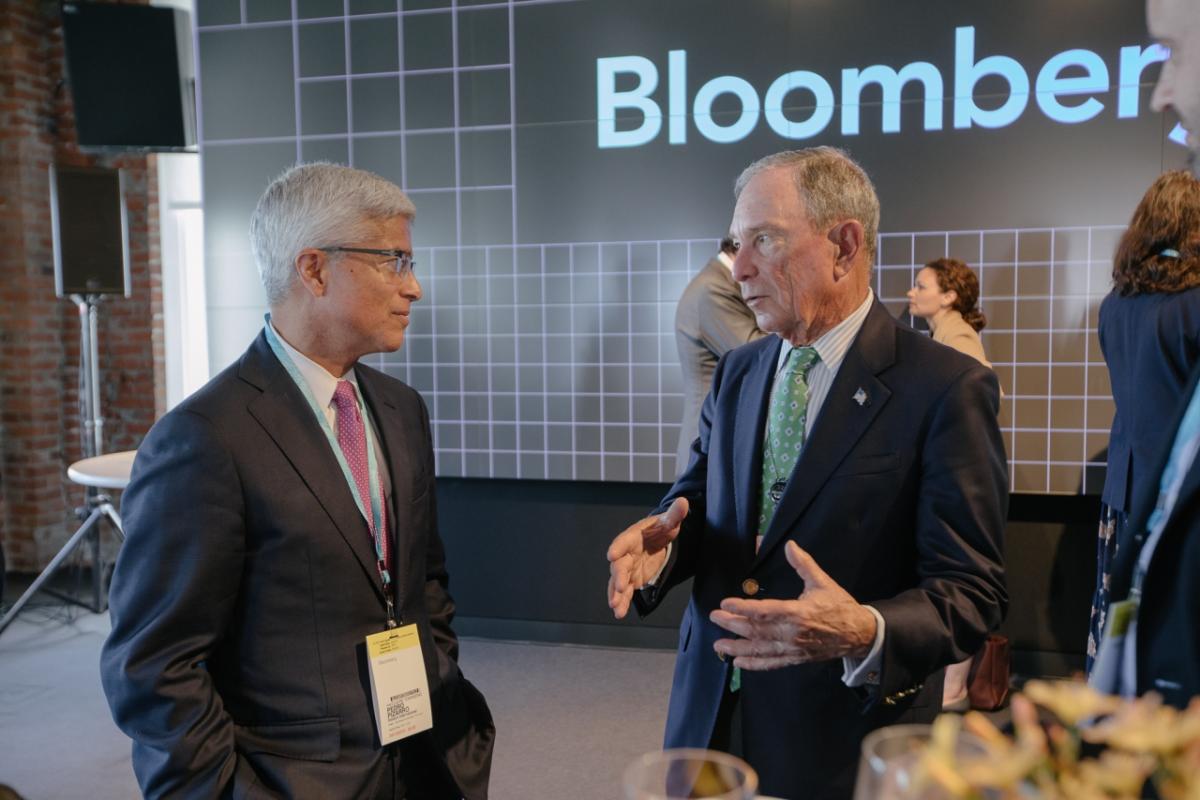Edison Shares Vision for Clean Energy Future at Global Summit
The company makes a commitment to pursue the development of more than 50,000 electric vehicle charge ports in its service territory by 2025.
Corporate and government leaders from across the globe gathered in San Francisco recently for the Global Climate Action Summit, an event to promote the sharing of ideas and strategies for curbing greenhouse gas emissions that contribute to climate change.
For Edison International, the summit provided myriad opportunities to introduce an international audience to the company’s vision for a clean energy future and show how that vision can be realized.
Known as the Clean Power and Electrification Pathway, Edison’s blueprint for achieving California’s 2030 greenhouse gas and air pollution goals calls for more emissions-free energy on the grid, millions of electric vehicles on California highways and electric space and water heaters in nearly one-third of all California buildings.
“All of us have an important role to play in finding solutions to climate change,” said Pedro Pizarro, president and CEO of Edison International, Southern California Edison’s parent company. “As a utility, we can do our part in not only cleaning the power system, but also in electrifying other parts of the economy. Specifically on transportation electrification, we have a huge opportunity in California to lead this change.”
And progress is being made on this front, Pizarro said. “As part of our participation in the Global Climate Action Summit this week, we are highlighting our commitment to pursue the development of over 50,000 electric vehicle charge ports in our service territory by 2025.”
Pizarro spoke at a summit luncheon of business, finance and government leaders hosted by former New York Mayor Michael Bloomberg at his company’s West Coast Technology Hub.
Around the corner at the Moscone Center, SCE President Ron Nichols participated in a panel moderated by California Air Resources Board Chair Mary Nichols (no relation) who asked him why SCE’s commitment to electric vehicle expansion is so bold.
“To get to the state’s 2030 greenhouse gas reduction goals, we believe we need something like 7 million electric vehicles across the state,” Nichols said. “That’s why electrifying transportation is a very high priority for Southern California Edison.”
Another major component of SCE’s plan for achieving California’s emission goals is clean energy. “We believe that not only SCE, but also statewide, we can get to 80 percent carbon-free energy by 2030,” he said. “This will allow us to move forward to have very clean energy displacing gasoline and diesel in those vehicles.”
At a session entitled “Fast Tracking Electric Vehicle Deployment” sponsored by the Natural Resources Defense Council, Caroline Choi, SCE senior vice president for Regulatory Affairs, stated it succinctly: “Our vision is to clean the grid and then plug everything into that. Then we can leverage that clean grid in other sectors of the economy, primarily transportation.
“We see great opportunities to move from emissions to zero-emission vehicles,” Choi said. “Not just because of climate issues, but because in Southern California we have significant air quality problems, and transportation is the greatest contributor to that problem.”
Drew Murphy, senior vice president of Strategic Planning for Edison International, who joined Govs. Jay Inslee and John Hickenlooper at the U.S. Climate Alliance session, underscored the importance of electrifying transportation.
“We are committed to achieving 40 percent greenhouse gas reductions by 2030 in California,” Murphy said. “Today, only 20 percent of carbon comes from the power sector, so we are cleaning that, but to make a difference, we have to tackle transportation, which is 50 percent of economywide emissions.”
Choi also took part in the second annual California-Germany Bilateral Energy Conference, an event bringing together industry experts, think tanks and policymakers from Germany and California to discuss recent developments and deepen the understanding of long-term trends in energy.
Foremost on German minds was how California remains committed to the Paris Climate Accord in the face of climate deniers and other clean energy detractors at the federal level.
“First of all, let’s just say, ‘We’re still in!’” Choi said, repeating the slogan of those who continue to support the Paris Climate Accord despite the announcement from Washington, D.C. to withdraw from the agreement. “We’re only 12 years away from a very significant and ambitious goal. We cannot stop or pause in that effort.”





